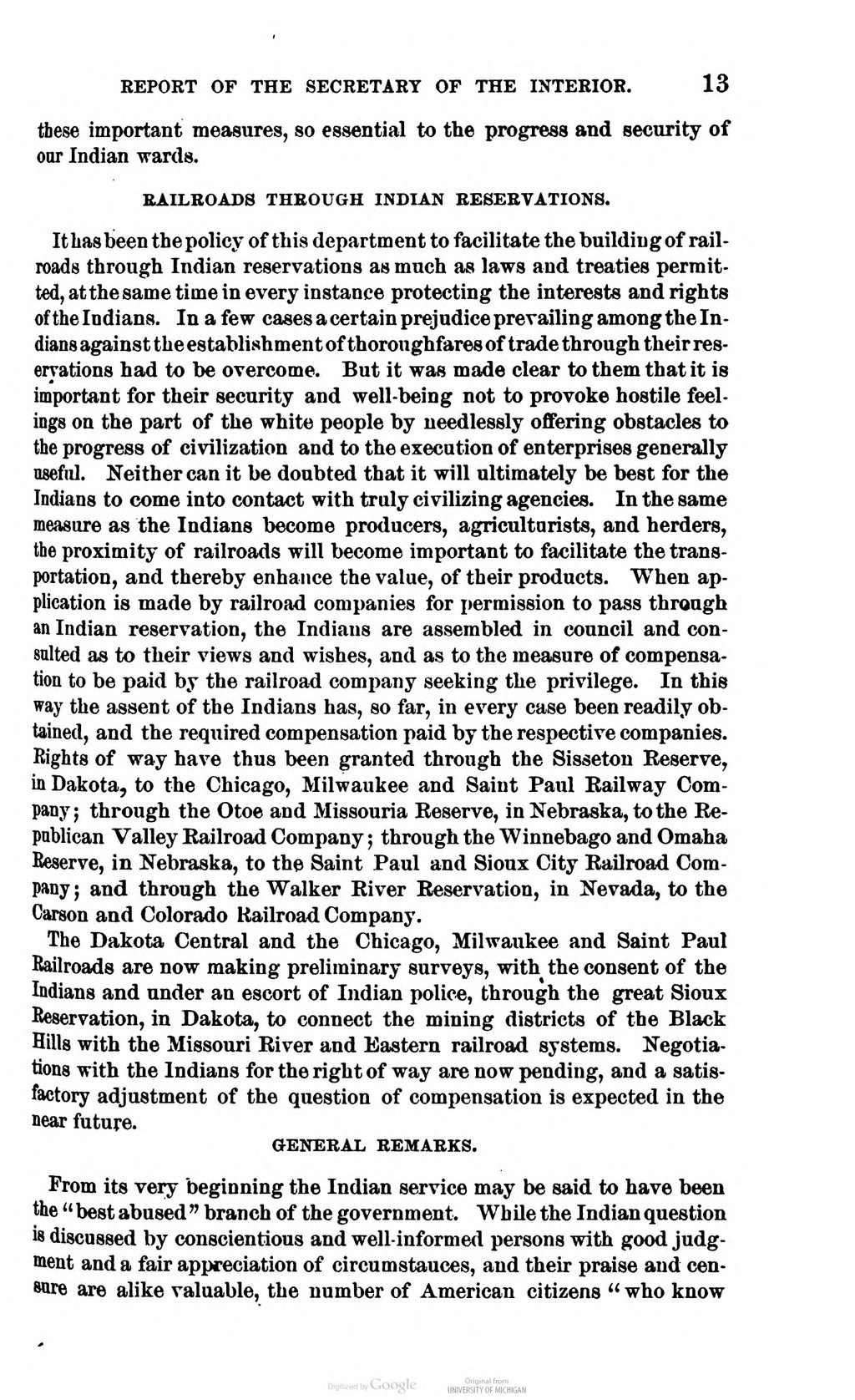these important measures, so essential to the progress and security of our Indian wards.
RAILROADS THROUGH INDIAN RESERVATIONS.
It has been the policy of this department to facilitate the building of railroads through Indian reservations as much as laws and treaties permitted, at the same time in every instance protecting the interests and rights
of the Indians. In a few cases a certain prejudice prevailing among the Indians against the establishment of thoroughfares of trade through their reservations had to be overcome. But it was made clear to them that it is
important for their security and well-being not to provoke hostile feelings on the part of the white people by needlessly offering obstacles to
the progress of civilization and to the execution of enterprises generally
useful. Neither can it be doubted that it will ultimately be best for the
Indians to come into contact with truly civilizing agencies. In the same
measure as the Indians become producers, agriculturists, and herders,
the proximity of railroads will become important to facilitate the transportation, and thereby enhance the value, of their products. When application is made by railroad companies for permission to pass through
an Indian reservation, the Indians are assembled in council and consulted as to their views and wishes, and as to the measure of compensation to be paid by the railroad company seeking the privilege. In this
way the assent of the Indians has, so far, in every case been readily obtained, and the required compensation paid by the respective companies.
Rights of way have thus been granted through the Sisseton Reserve,
in Dakota, to the Chicago, Milwaukee and Saint Paul Railway Company; through the Otoe and Missouria Reserve, in Nebraska, to the Republican Valley Railroad Company; through the Winnebago and Omaha
Reserve, in Nebraska, to the Saint Paul and Sioux City Railroad Company; and through the Walker River Reservation, in Nevada, to the
Carson and Colorado Railroad Company.
The Dakota Central and the Chicago, Milwaukee and Saint Paul Railroads are now making preliminary surveys, with the consent of the Indians and under an escort of Indian police, through the great Sioux Reservation, in Dakota, to connect the mining districts of the Black Hills with the Missouri River and Eastern railroad systems. Negotiations with the Indians for the right of way are now pending, and a satisfactory adjustment of the question of compensation is expected in the near future.
GENERAL REMARKS.
From its very beginning the Indian service may be said to have been
the "best abused" branch of the government. While the Indian question
is discussed by conscientious and well-informed persons with good judgment and a fair appreciation of circumstances, and their praise and censure are alike valuable, the number of American citizens "who know
